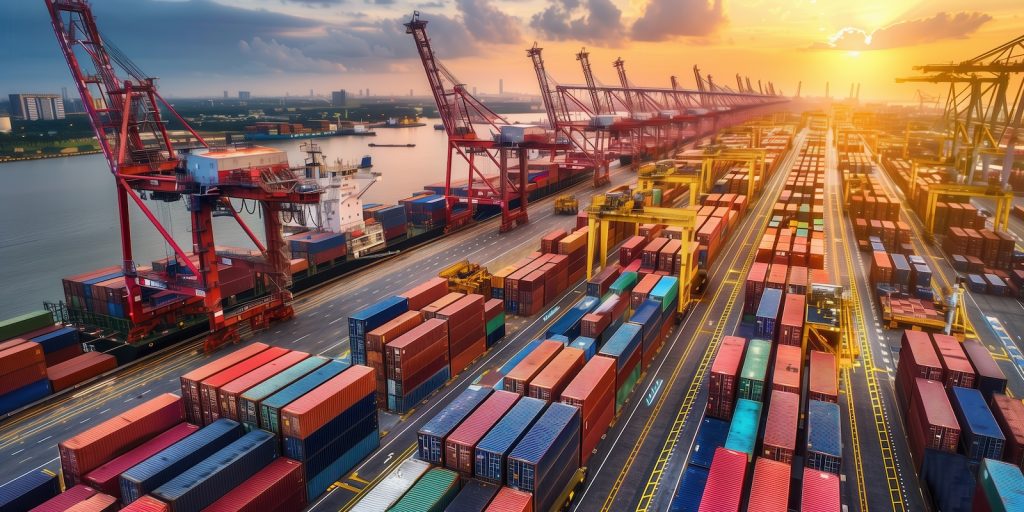
a cargo port or terminal with cranes loading shipping containers onto cargo ships --chaos 20 --ar 2:1 --style raw --stylize 200 Job ID: 5cad81c1-7fcc-4584-81a3-0a66a617cc66
The first strike in almost 50 years involving nearly 50,000 members of the International Longshoremen’s Association (ILA) has shut down East and Gulf Coast ports.
The Taft-Hartley Act gives President Biden the power to intervene with an 80-day cooling off period that could halt the work stoppage, but the Biden Administration has chosen to let the negotiations play out.
Economists say that the disruption to U.S. supply chains will not be immediate. However, if the strike at the 36 ports from Maine to Texas drags on into weeks and months, it could lead to parts shortages, delays in manufacturing and higher costs passed on to consumers.
Analysts at JPMorgan Chase estimates that the economic impact could eventually be as high as $5 billion per day.
The more immediate fallout is that the strike feeds into the perception that the Biden administration’s policies contribute to inflation and economic instability.
Perishable goods like fresh fruits and vegetables could spoil if stuck in transit. This could result in empty grocery shelves and higher food prices.
The ongoing uncertainty and lack of clarity into the strike’s impact have led to reports of shoppers snapping up essentials like toilet paper. With 90% of toilet paper made in the United States, the American Forest and Paper Association, a trade group representing paper manufacturers, said it was concerned with the strike’s impact on exports, not on imports.
Photo credit: Adobe Stock




